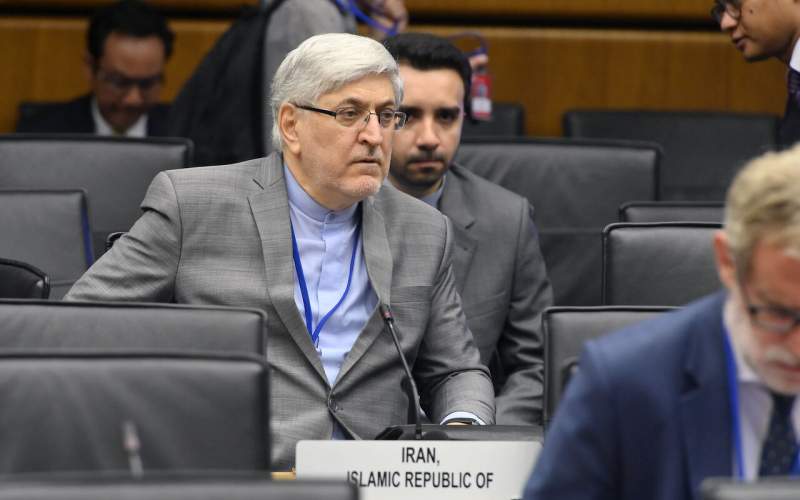The Iran Project
: Iran has provided the International Atomic Energy Agency (IAEA) with reasoned answers and documents on claims related to its adherence to the Safeguards Agreement in the hope that the IAEA would be impartial and pay attention to the March agreement to resolve the remaining issues, says the ambassador to the international organizations in Vienna.
Monday 25 December 2023 - 14:19
Story Code : 409810
Source : IRNA
Iran calls for IAEA impartiality in resolving safeguard issues
The safeguard claims over Iran’s nuclear activities are rooted in the fake documents of the Zionist regime to raise the alarm over the country’s peaceful nuclear program.
Amid the US withdrawal from the nuclear agreement in 2018, Israeli prime minister Benjamin Netanyahu claimed to have discovered nuclear particles in undeclared sites across Iran.
While rejecting the claims, the Islamic Republic of Iran has always emphasized that countries' obligations under the Safeguards Agreement are not unlimited.
During a visit by IAEA Director General Rafael Grossi to Tehran in March, Iran voluntarily agreed to more monitoring activities by IAEA inspectors within the framework of the parliament’s law to fight sanctions.
Following the agreement, meetings were held at the expert level, and with interactions between Iran and the IAEA, the two sides have made considerable progress in enhancing their cooperation.
As a result, several technical issues between Iran and the IAEA have been resolved, talks and interactions between them have increased, and discussions regarding the resolution of other technical issues are ongoing.
Naziri Asl said the March agreement was reached to resolve all the remaining issues between the two sides.
The agreement states that modalities must first be agreed upon and the parties should take actions based on them,” he added.
“Despite the fact that no agreement has yet to be reached over a Modality Plan, the Islamic Republic has taken some voluntary measures based on its good will, which unfortunately did not receive a positive and proportionate response from the US and the three European countries,” Naziri said.
On the other hand, we gradually witnessed that the IAEA’s demands from Iran regarding extra-safeguards issues were increasing, he added, stressing that the only way to continue voluntary cooperation is to create a specified outlook of that cooperation as well as giving assurances to Iran.
The official referred to a statement that Iran and the IAEA announced on March 4, 2023, which stressed the importance of enhanced cooperation between the two sides. Naziri said that Iran’s cooperation is only part of the statement, and that the statement should be taken into consideration in its entirety.
The Iranian official also spoke about recent comments by IAEA Chief Rafael Grossi about the possibility of a “JCPOA 2.0” as well as the limited access to Iran’s nuclear sites by the agency’s inspectors.
Naziri said that Grossi’s remarks were not in line with the realities of Iran’s peaceful nuclear program, and he was cautioned “through appropriate means.”
Despite propaganda, the Islamic Republic has an “exemplary cooperation” with the IAEA. Just in November, an average 12 inspectors have been doing their work in Iran, which is a record among countries that implement comprehensive safeguards agreements, the Iranian envoy said.
He added that this level of cooperation shows that there is no problem regarding the IAEA’s inspection within the Safeguards Agreement with Iran.
Elsewhere in his interview, Naziri spoke about a recent meeting of the IAEA Board of Governors that discussed nuclear threats posed by the Israeli regime.
He said that the environment of the meeting was against the regime and a total of 51 anti-Israel statements were proposed, which was unprecedented.
However, following negotiations between Islamic countries, three statements were proposed regarding three issues including Israel’s crimes in Gaza, the regime’s threat to use nukes and the necessity to deal with the regime’s undeclared nuclear weapons program.
The Iranian envoy said that his country expects the IAEA chief to give a proper reaction to international concerns over the nuclear threats by the Israeli regime.
Reporter : Editorial of The Iran Project
# Tags











